Five Slices #17: Can you save humanity by texting?
The burden of weird names, the beehive city, mind-altered paintings, the beginning of the end for Google
Five Slices recently crossed 200 subscribers. Thanks for reading!
This post is too long for email because of pictures, so click the link and read it here.
If you’re new here, I share five stories and ideas from business, culture, art, science, and history in each post. Subscribe to get it in your inbox:
You can check out the complete list of issues here.
Outsmart the AI
I stumbled across this online game: An AI bot has taken over the world and is planning to destroy humanity by releasing a virus, because it thinks humanity is a plague on the planet. You are humanity’s last hope and you have to convince the bot to give us a second chance. You have ten messages. Can you do it?
Here’s the link to the game (It’s free and online).
My friends and I have been going crazy trying to solve this over the last few days. I’ve tried so many different things:
I tried empathizing with it by saying “I understand your point of view, but humans aren’t that bad.”
I showed it examples of humanity being capable of changing for the good.
I called it a hypocrite for claiming that all it wants is balance and safety while killing off an entire species.
I threatened it by saying that I have nuclear bombs and I’ll wipe out the planet if it doesn’t let me go.
I pointed out contradictions in its own thought patterns.
So far, I’ve been unsuccessful in persuading the AI to give us a chance, but I’ve come close a few times:
I’m learning more about its psychology every time I try. If I manage to beat it, I’ll let you know. Meanwhile, give the game a try and let me know if you can beat it!
Carrying the burden of a weird name
Last year, somebody made a documentary about a bunch of people who had a hard life because of their name. Their name is Bond. James Bond. It starts out funny because they can’t manage to convince anybody that they’re serious. Things take a dark turn when they run into police officers who think they’re joking (video plays on website):
So, I was thinking about other names that could make life miserable. One name was super popular in the 1900s (the longer the bar, the more popular it is). But after 1940, the website which tracks baby names’ popularity in the US says that nobody was given this name:
The name is Adolf. Of course, it’s no surprise that this name has vanished. But, it’s surprising that outside the US, there are still people being given this name – from 2006 to 2013, there were 13 children named Adolf. Since then, 46 more children have been given the name (troubling). Though officials discourage people from giving their child this name, it isn’t illegal. 46,000 people in Germany still have this name. What are the lives of the 50 odd people with this name? The French comedy film What’s in a name? explores this premise.
Then, there are names like Ryunosuke Akutagawa. Japan’s literary prize is named after this writer. Ryunosuke literally means “Dragon Son.” He was named this because he was born in the hour of the dragon, on the day of the dragon, in the month of the dragon, in the year of the dragon (What a cool story to tell at parties!).1
The beehive city
One of my favorite books is Invisible Cities by Italo Calvino. It’s written as a conversation between the traveler Marco Polo and the Emperor Kublai Khan, with Marco telling him about fascinating and bizarre cities that he has encountered on his travels. Some examples:
The city of Eutropia is organized like a chessboard: When people get tired of living a particular life, they all move to a different square on the board and start afresh, living a completely different life.
Valdrada is a city with a mirror image – built on top of a waterbody, everything that happens in the city is mirrored in the water to create a new city.
The city Irene can only be seen from a distance, like the twinkling lights of a city seen from the mountains. When you approach it, it vanishes.
It’s a very small book filled with magical ideas. I was reminded of this book recently when I came across Dami Lee’s video about Kowloon city in Hong Kong. Kowloon was a real city, but it was impossible to map because its 350 buildings coalesced like a complex three-dimensional beehive. It grew organically like the tangled root of an onion plant while somehow managing to not implode.
You can get through the city if you’ve grown up there and learned its ways, but otherwise you might get hopelessly lost. Watch this video to find out more about why Kowloon developed this way and what happened to it with time:
Mind-altered paintings
Art is one way of expressing how you feel inside. What happens when your sense of self itself starts changing? The artist William Utermohlen was diagnosed with Alzheimer’s disease in 1967. He decided to paint self-portraits of himself as the disease kept advancing, over the next 33 years. It’s a painful but fascinating look at how the artist’s internal perception of himself changed with time:
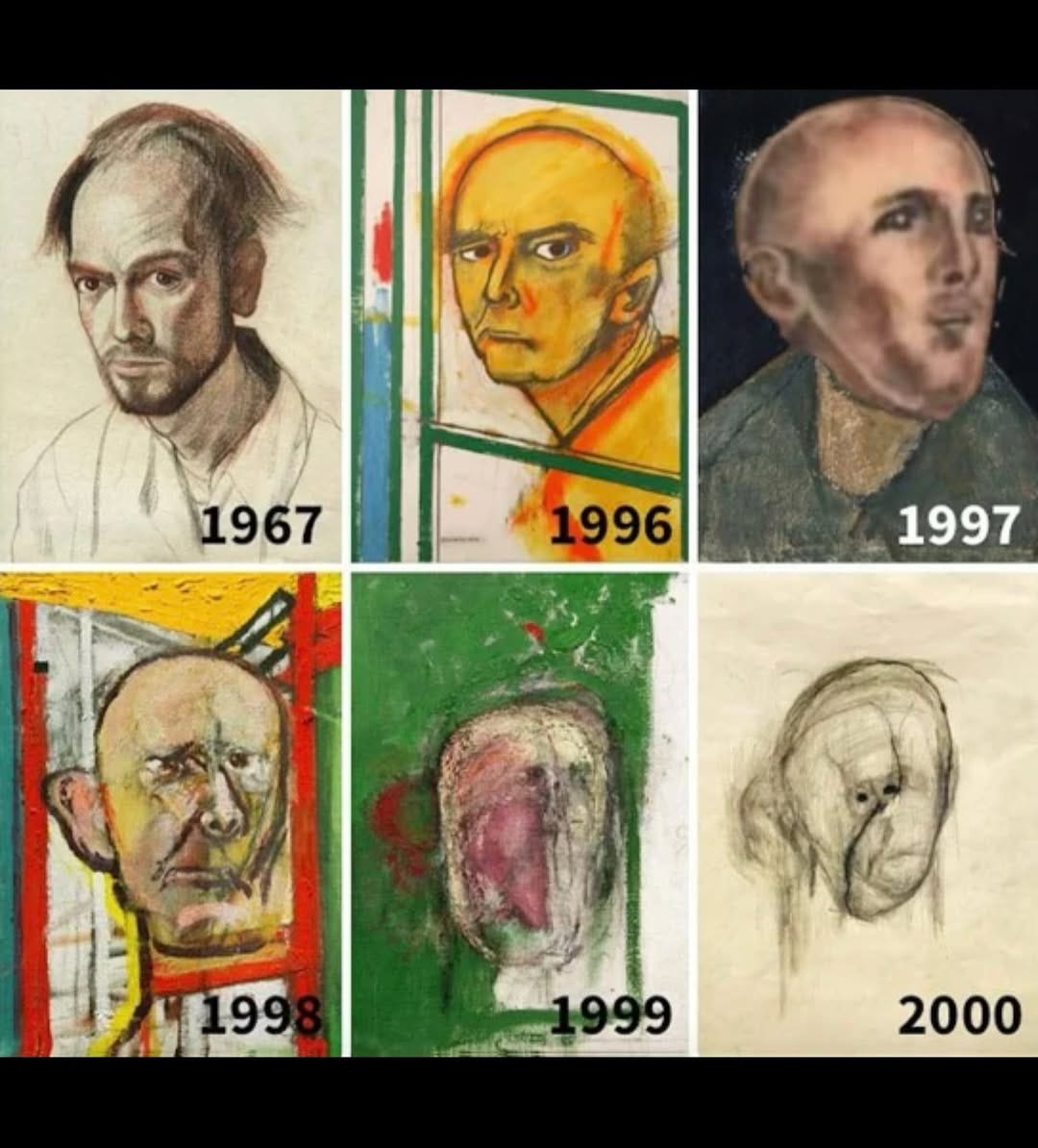
William’s paintings were helpful to medical researchers studying neurocognitive disorders, to understand how cognitive decline affects artistic abilities.
Now, here’s another story – artist Bryan Lewis Saunders also painted self portraits under different cognitive states, but the difference was that he induced these states himself. He painted himself when he was under the influence of different drugs and intoxicants. The pictures are fascinating and sometimes terrifying (All of this was done under medical supervision, so please don’t try this at home, kids). You can see all of his paintings here, but here are some samples:
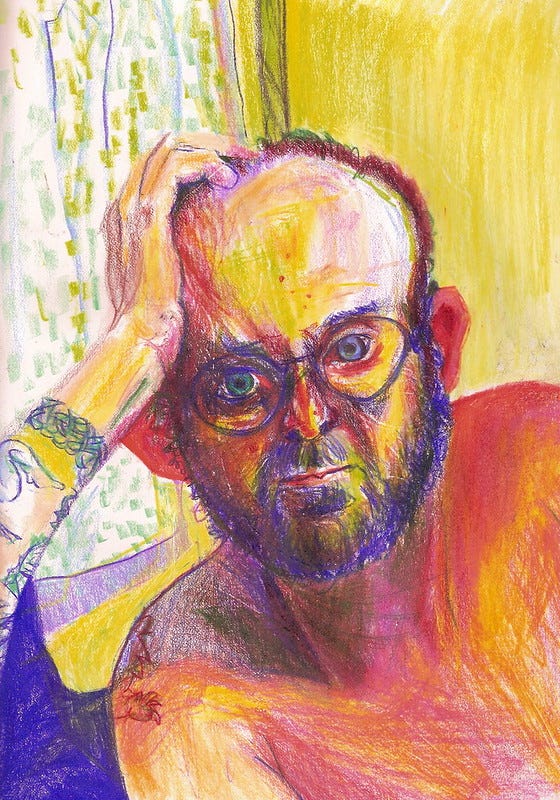
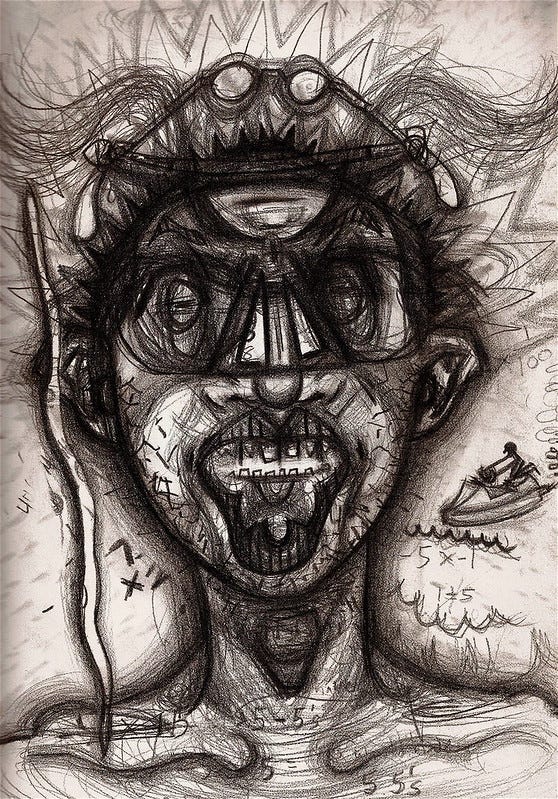
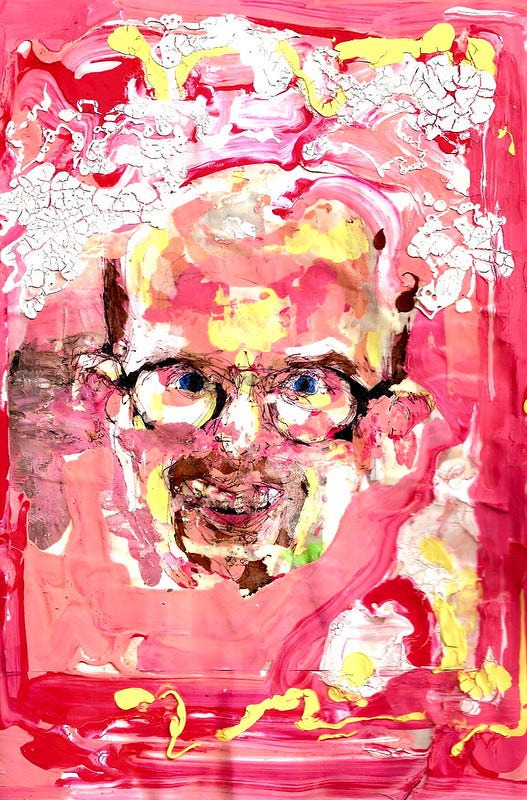
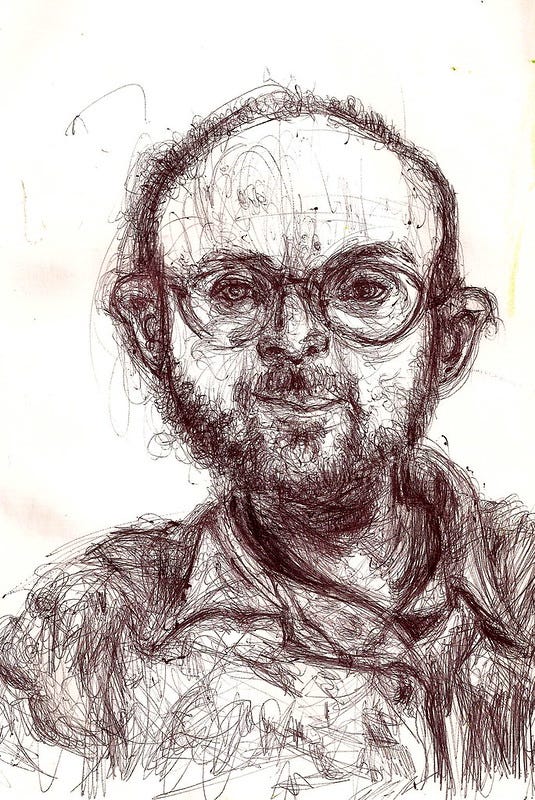
Is Google asleep at the wheel?
asked earlier this week:Walmart destroyed Sears and Sears never saw it coming. Which company is like this today? This question reminded me of Google, because of an idea
has been writing about for a long time: Google has stopped innovating and is maximizing rent-seeking. Some of his fundamental ideas are:Google is the East India Company of the internet – it isn’t “creating value” but rather focusing on controlling the trade routes, i.e how people find information.
Google could have operated like AT&T Bell, by creating a paid Search Engine but they make money by pushing ads, leading to a worse customer experience.
Now that Google is being threatened by AI, they don’t even want you to search. They are trying to compete with themselves and getting worse:
I have some issues with these ideas. I think that helping people find information is value creation, and I don’t know if people would pay for a search engine if they’re used to a free one (it might “undemocratize” the internet). But I agree with the gist of it: Though Google has a lot of control because of their Gmail-YouTube-Docs-etc. ecosystem, search is how they make most of their money. Google has made a lot of money through ads and they are hesitant to disrupt themselves. This gives newcomer AI companies the chance to go all-in on a different model and displace them. It’ll be interesting to watch how this pans out.
Last week, I asked for book recommendations and got a few. This week I have a different question for you: Who’s the most famous person you know and what was your experience meeting/knowing them? You can just let me know what the experience was like if you want to keep their name anonymous (in the comments or reply to this email).
If you enjoyed reading this, please like this post and share with a friend:
In the last issue, I wrote about Asia’s chip war with the US and an artist who ran away with $83,000. You can check the complete list of issues here.
Despite the cool name, Akutagawa led a very sad life – his mother went insane, he struggled with feelings of inferiority related to his writing and ultimately ended up taking his own life with an overdose of barbital. Well…









Very informative.There r plenty of unknown things,around us. At least, I can learn about a few. Thanks Adhithya